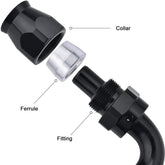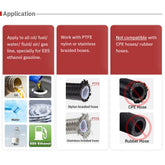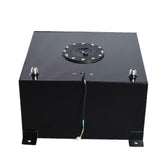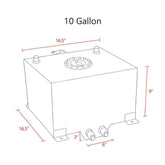Two of the most popular performance upgrades for diesel engines are DPF and EGR deletes. While it may seem counter-intuitive to remove exhaust components from your car, there are several benefits to doing so.
Aftermarket kits known as deletes are used to remove factory-installed components from diesel engines that reduce performance and fuel efficiency. The three most widely used delete kits are the DPF, DEF, and EGR kits.
Do you want your diesel engine to run more smoothly and perform better? Next, see how the diesel deletes on these three popular kits vary from one another.
What is a Diesel Delete?
Due to the notoriously greasy and dirty nature of diesel exhaust, clogs can occur in the diesel particulate filter (DPF), EGR (exhaust gas recirculation) valve, EGR sensors, and EGR cooler over time. When these parts get clogged, performance and fuel economy will deteriorate, requiring cleaning or replacement of certain emissions-related parts. Alternatively, some owners of diesel vehicles decide to "remove" these elements that limit emissions.
To perform a diesel deletion, the exhaust must be replaced with a new one after the DPF, catalytic converter, and DEF system are removed. The car's ECU (engine control unit) will also need to be reconfigured, which will require a tuner. This tuner will replace the OEM (original equipment manufacturer) software that controls engine timing and fuel flow with a new one.
In order to precisely measure engine running parameters and ensure that no emissions-related issues arise as a result of the missing components, the tuner will also recalibrate the onboard diagnostic system (OBD).
After a diesel elimination is completed, the soot-clogging issues are remedied. Furthermore, it might be feasible to improve performance with more torque, horsepower, or fuel efficiency. These advantageous gains could be impacted by the tuner, aftermarket software, and engine hardware.
There are three different types of kits available for diesel deletes: DPF, DEF, and EGR. These services are regularly used by diesel car owners for their engines.
It's crucial to remember that making these changes, sometimes called "deletes," may have an impact on performance, the environment, and the law. Regulations may be broken if emissions control systems are tampered with because many areas have stringent emissions limits. Eliminating or avoiding these parts may result in higher emissions, which could be detrimental to the environment and air quality. Such changes may also invalidate car warranties and have a detrimental effect on engine performance.
Although some car owners decide to do diesel deletes in an effort to increase performance or save money on maintaining emissions control parts, it's important to think about the environmental and legal ramifications before making such changes. Whenever considering any kind of change to a vehicle's emissions control system, it is important to keep local rules in mind and seek the advice of automotive professionals.
DPF (Diesel Particulate Filter):
Function: To stop particulate matter (soot) from being released into the atmosphere, diesel engine exhaust gases are captured and trapped by the DPF.
Problems: Engine performance may suffer from soot buildup in the DPF over time. Usually, this calls for regeneration, which involves burning off the accumulated soot. It could occasionally be necessary to replace a DPF.
DEF (Diesel Exhaust Fluid):
Function: In diesel engines that have Selective Catalytic Reduction (SCR) technology installed, DEF is a fluid that is sprayed into the exhaust stream. By transforming them into innocuous nitrogen and water vapor, it aids in the reduction of nitrogen oxide (NOx) emissions.
Problems: To save money and hassle when buying and refueling DEF, some car owners may try to disable or circumvent the DEF system. On the other hand, doing so can result in higher emissions and legal problems.
EGR (Exhaust Gas Recirculation):
Part of the engine's exhaust gases are recirculated by EGR systems back into the combustion chamber. This lowers combustion temperatures, which helps to reduce NOx emissions.
Problems: Over time, carbon deposits can block EGR systems, which can impair engine performance. To disable or circumvent the EGR system, some car owners think of using EGR delete kits.
Considerations Before Deleted from a Diesel
While a DPF, DEF, and EGR removal will improve the performance and extend the engine life of your diesel car, there are a few things you should consider beforehand:
- Warranties: If pollution-control components are removed or modified, your engine's warranty may be nullified. Verify your car's warranty conditions before making any deletions.
- Restoring Components: You should budget a significant amount of money if you choose to have the pollution-control components on your truck repaired for whatever reason.
- Legalities: A number of Canadian provinces prohibit DEF deletes. Be sure to review the laws in your province before making any changes of this nature.









